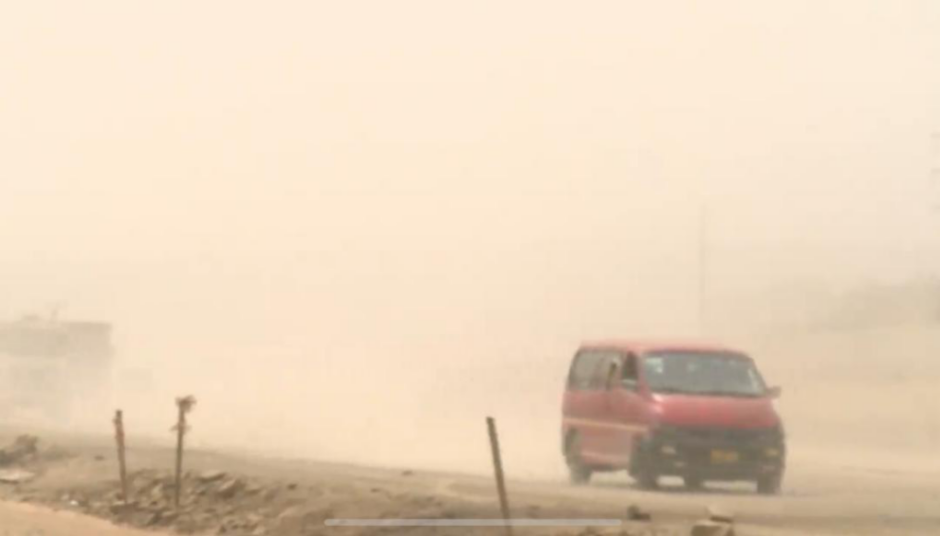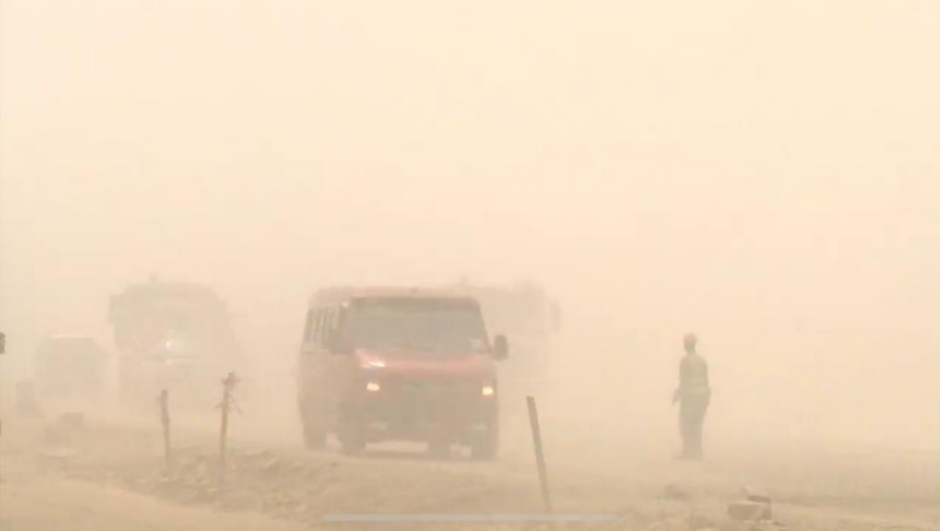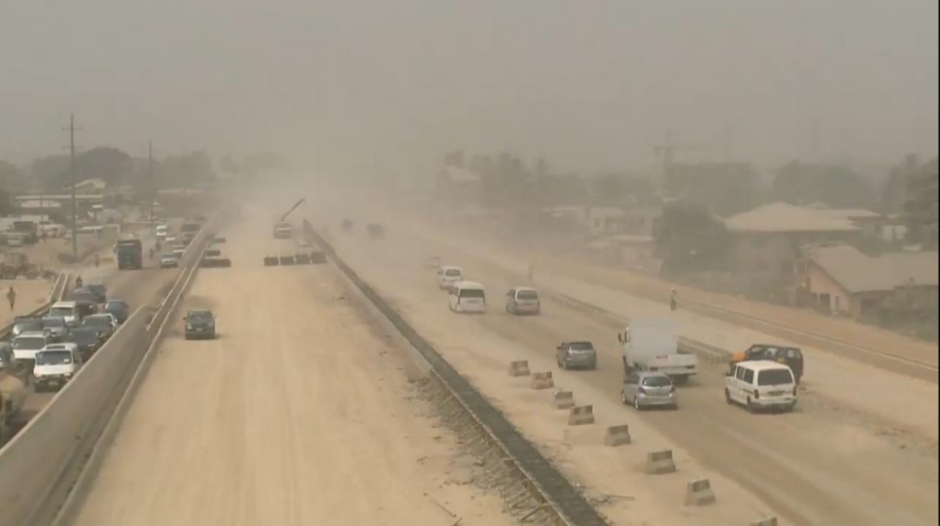
The Ofankor-Pokuase-Nsawam highway has become a dust-choked battleground, leaving residents and workers grappling with air pollution.
The stretch spans more than thirty kilometres and ferries thousands of commuters daily. After enduring years of a road plagued with potholes, this road rehabilitation has become a new inconvenience for the community.
Stephen Agyekum, a resident, expresses his concerns: “Once they started this road, the dust is worrying us too much. It worries me when I dress up to go to work. It seems my attire or my dress will be dirty from the dust.”
Naa Kordie, another resident, adds: “The dust has become a major concern for me and my neighbors. My entire house is now covered in dust. People with asthma are constantly struggling to breathe, causing significant discomfort.
“I frequently notice dust in my nose and ears, and my face often feels sandy and itchy. Even when I cough, I can sometimes see dust in my phlegm.”

Air pollution is a growing problem across the world, especially in fast-growing cities like Accra. Pollutants from vehicle exhausts, factories, and waste burning are sickening many Ghanaians and leading to nearly thirty thousand premature deaths a year according to the World Health Organisation.
Air pollution is a major cause of lung diseases like asthma and pneumonia but it also leads to blindness, heart disease, stroke, diabetes, and birth defects.
Roadworks here were badly needed. People had endured potholes that had made the trip difficult for years. The construction is expected to continue until December 2024.
Road works like this are a problem across Ghana. In hot dry months, dust kicks up blanketed communities around it causing a range of serious health problems. Some that might be with people for life.
Dr Kwabena Agyenim-Boateng works as a resident Ear Nose and Throat Surgeon at the Korle-Bu Teaching Hospital. He says dust can be so small and so overwhelming that it gets into the lungs and the bloodstream.
It’s no surprise many people have chosen to wear a mask. Health experts say that’s good. Masks are one way to reduce inhalation of dangerous pollutants.
Reducing exposure to dust is also important, especially for vulnerable groups like children, the elderly, and those with existing health problems.
Elvis Gadoseh, a heavy-duty truck mechanic in Fise, explains: “I have been suffering from catarrh and coughing because of the dust. As you can see my workshop here, is near the road.
“And there is a lot of the dust. You can’t be on the road and be working. Because of how the road is, the dust is causing us a lot of tough time.”
Haggai Bammare, an expectant mother, says: “If I don’t put on the mask when I reach home now, my throat will be paining me. The dust is too much. Sometimes, I will walk and work the whole day.”
At a nearby pharmacy, Angela, a Pharmacy Assistant, notes an increase in dust-induced complications in the area: “For now, it’s just the cough, sore throat and the cold that we see.

“But then looking at a long period could lead to other complications. We tell them, they should drink water more and then get a nose mask if they are around the area in the dust.”
Dr Carl Osei, the Programme Manager of the Occupational and Environmental Health Unit at the Ghana Health Service, explains the far-reaching effects of dirty air on many groups of Ghanaians.
The woes of the people are far from over. The dry and hot weather conditions have worsened the situation.
Resident Engineer on the project, Engineer Kwabena Bempong says they cannot be blamed for the dust pollution that has enveloped the area although he admits they have challenges suppressing the dust.
“In Harmattan, we all know that we have those issues. So to attribute it entirely to our projects I think it’s a little bit if it’s not disingenuous maybe it is stretching the issue too far.”
“Before December we didn’t have any challenge, we were suppressing dust, dust is a major issue. We were suppressing dust with water tankers, but then sometime in January, we had a little bit of a challenge where a lot of our water tankers failed us in terms of mechanical failures and we resorted to employing the private tankers to help us.
“But that wasn’t enough. So for about two weeks, we had a challenge with dust pollution and of course that coupled with the weather because we are in the harmattan season and that messed us up”
“We try to have some other chemicals added to the water to reduce and of course to ensure that the water stays on the road. Unfortunately, we were not successful with those chemicals even though they were expensive.”

During our visit to the area, a water tanker was seen sprinkling water on the dusty road. But it didn’t do much.
The dust makes it impossible to see much. With every breath, you can smell and taste the dust in the air. We have been here for less than 15 minutes and the water that was sprinkled on the road is already drying up.
The residents are urging authorities to consistently dampen the road throughout the construction process.
Engineer Bempong states that they are currently increasing the fleet of water tankers to improve the dust suppression measures.
“So we resorted to increasing the frequency as opposed to using chemicals that would ensure that the dust is suppressed for a considerable time and then we now have to have that consistent soil frequency that we envisage.
“So now we have to increase it and increase the number of water tankers. Now we have about 14 on the road. It used to be about nine initially but as a result of the challenges that we have been with increased it.”
“But then we are continuously monitoring the air quality and when I say air quality we are not only talking about dust but then there are other greenhouse gases”
This story was a collaboration with Joy News. Funding was provided by the Clean Air Fund. The funder had no say in the content of the story.
